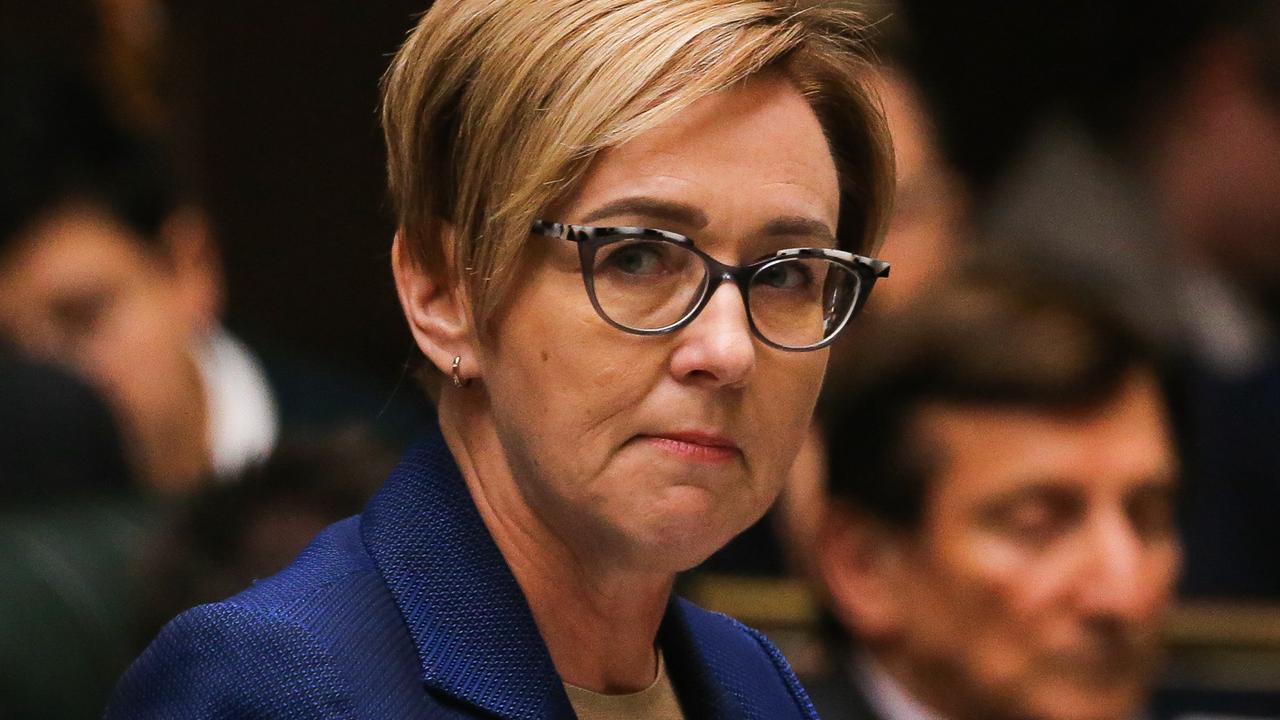The NSW Minister for Women and the Prevention of Domestic Violence and Sexual Assault has admitted she has yet to meet with the NSW Police Commissioner Karen Webb despite increasing rates of domestic violence.
This comes after the high-profile death of 21-year-old Sydney teacher Lilie James, who was allegedly murdered by Paul Thijssen, a fellow teacher. Ms James had allegedly been dating Mr Thijssen for five weeks before ending the relationship days before the alleged attack.
Recent figures state domestic violence has increased by 3 per cent in NSW over the past five years, with 37 per cent of women in NSW experiencing physical and/or sexual violence since the age of 15.
Nationally, in the 10 days to November 1, six women have been killed in alleged domestic violence incidents, with that number increasing to 58 as of January 1, 2023.
During budget estimates on Friday, Jodie Harrison was asked why she hadn’t prioritised a meeting with Ms Webb give the “level of concern” in relation to domestic violence.
Ms Harrison said while she hadn’t had any “direct meetings” with Ms Webb, she had met with “a number of senior officers”, including deputy commissioners and assistant commissioners.
“We’ve had some really good conversations about how we can ensure that police respond to domestic and family violence appropriately and I believe that the police are actually doing some pretty amazing work in relation to improving their responses and providing the best response possible,” she said.
In earlier questioning, Ms Harrison also struggled to answer the financial impact of domestic violence to NSW’s economy.
According to numbers from the 2023-24 Gender Equality Budget Statement, the escalation in domestic and family violence in 2020 will cost the state $3.3bn between 2020 and 2025.
The figure was calculated through reduced participation and productivity, private and public health costs and increased consumption costs, such as costs associated with property damage.
Opposition spokeswoman for women and the prevention of domestic violence, Leslie Williams questioned whether Ms Harrison was “out of her depth”.
“When answering questions at the Budget Estimates hearing, the minister demonstrated her lack of knowledge of the extent of the problem in NSW, couldn’t answer basic Budget questions, and finally revealed that she hadn’t even spoken with the Police Commissioner,” she said.
“The current domestic violence epidemic requires a serious and immediate response from the Minns Government, but instead we have a minister who does not seem to be up to this important task.”
‘Impossible’ flaw in state’s coercive control law
Greens MP Abigail Boyd also expressed concerns over the state’s plan to criminalise coercive control, with the laws slated to come in effect from July 2024. The offence would carry a maximum penalty of seven years imprisonment.
Ms Boyd questioned whether the deadline would allow time for police to be adequately trained and said this could lead to “unintended consequences” for victims.
“It’s been put to me that’s mathematically impossible given the constraints on having to take some time off and having other people fill in and how many police have been trained in this offence so far,” she said.
Ms Harrison said all officers had received online training, with a “second phase” of training given to specialist police.
While Department of Communities and Justice (DCJ) secretary Michael Tidball acknowledged a widespread roll out would be “challenging,” especially in rural areas, he said there was
“quite a detailed plan” in place.
Strategy, Policy and Commissioning deputy secretary Anne Campbell said face-to-face training for specialist police had begun in June this year that focused on responding to incidents, recording evidence, prosecuting coercive control offences and dealing with First Nations and culturally and linguistically diverse communities.
“The NDE Police Force have engaged with specialists in domestic and family violence in the second phase of the training, including filming a panel interview to inform the training of 12,000 specialist police officers,” she said.
While the panel weren’t able to answer how many police had been trained to date, or how much leave officers would need to take to complete training, they took the questions on notice.
Asked whether the implementation of the offence would be delayed prior to training being completed, Ms Harrison said this would be a decision that would be made with Attorney-General Michael Daley.
However, current discussions indicated there were “no moves” to delay the roll out.
Ms Boyd emphasised the importance of an adequate training rollout prior to the offence being introduced.
“I’m sure you can hear it in my voice, I’m very concerned (over) the unintended consequences that will arise if we don’t do this properly,” she said.
“(This) was the very clear message coming out about the joint select inquiry into coercive control: This is something that we should do but only if we do it properly, otherwise it can make things worse.”
